Table of Contents
Material Guide: 11 Reasons to Choose Organic Cotton
This page may contain affiliate links. We may earn a commission on purchases, at no additional cost to you. Learn more →
Hello and welcome to the snuggly sphere of sustainable fashion, where soft textiles meet sustainability and stylish meets substance. Today we’re talking about organic cotton – the sustainable superstar of the eco-friendly wardrobe that’s gentle not just on the skin but on the planet too. So what exactly makes organic cotton such a rockstar fabric in the realm of sustainable fashion? Let’s dive right in.
What is Organic Cotton? 🌱
Organic cotton is basically cotton cultivated in harmony with nature - without the use of synthetic pesticides and fertilizers, and with the use of rainwater and sunlight. It’s all about farming practices which put the wellbeing of the ecosystem, the cotton growers and of course you, the wearer, first.
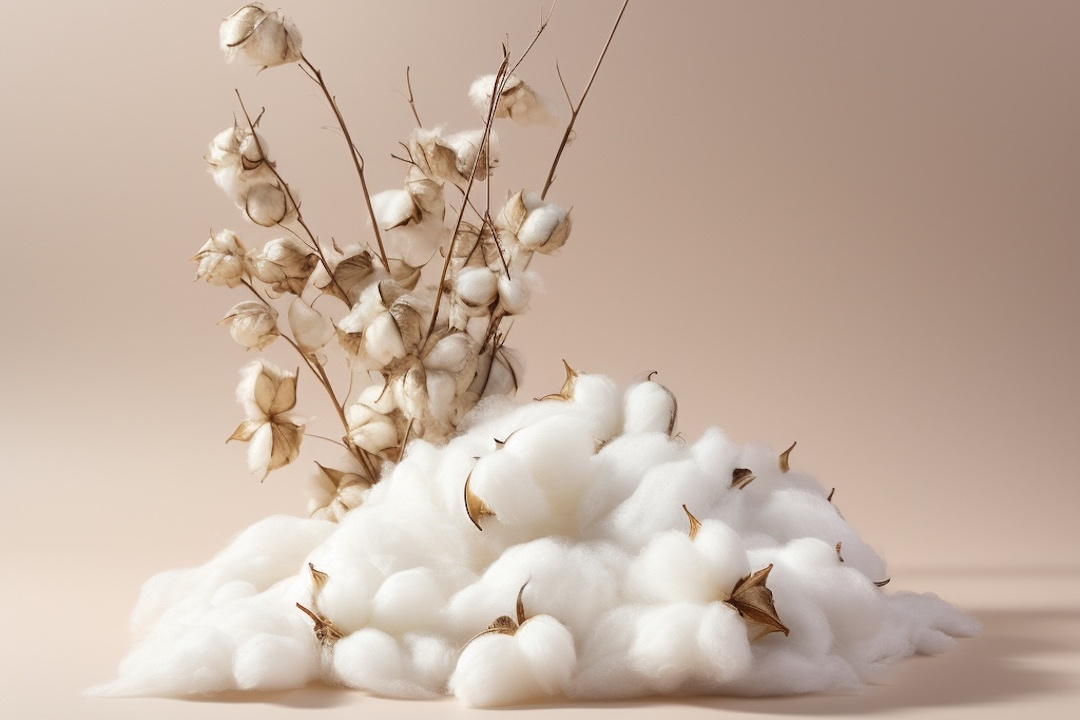
What sets organic cotton apart from conventional cotton is that it’s produced using strict organic farming standards and practices which ensure the soil, and not the chemical industry, is what nourishes the cotton plant; that the biological cycles are respected; that water is conserved and biodiversity fostered. Organic cotton garments are milder and kinder to the earth than their conventionally produced counterparts. So what’s the big deal about growing and wearing organic cotton? Let’s sum it up:
-
Water and Energy Savings: 91% less water and 62% less energy is needed to produce organic cotton then conventional cotton. (Textile exchange)
-
Reduced Chemical Use: 98% less pesticides used which is better for the environment and people who come in contact with them during production.
-
Non-GMO Seeds: : The journey of organic cotton starts with non-GMO seeds. GMO seeds are modified with the help of laboratory techniques to be resistant to pests and diseases. Organic cotton on the other hand is naturally selected over many generations, without the use of chemicals to adapt to its surroundings.
-
Global Reach and Growth: Organic cotton is produced in 19 countries around the world with India growing the largest share. The industry is expected to grow to 1.8 million tons by 2027 as more people look for sustainable materials.
-
Remarkable Water Savings: Organic cotton has a high water efficiency of up to 20,000 liters of water per 1 kg of cotton fiber. This helps in the conservation of our natural resource.
-
Soil Health and Water Conservation: Organic cotton farming uses non-GMO seeds and all natural farming methods that improve biodiversity and soil fertility which keeps the land healthy and productive. Healthy soil produces healthy plants that the surrounding ecosystem benefits from and thrives around.
-
Fair Trade Practices: Organic cotton farming practices support fair trade principles by ensuring that the farmers and workers who grow our cotton are paid fairly and work in healthy conditions, while also supporting community development.
-
Lower Carbon Footprint: Choosing organic cotton versus conventional helps to reduce its carbon footprint and help fight climate change.
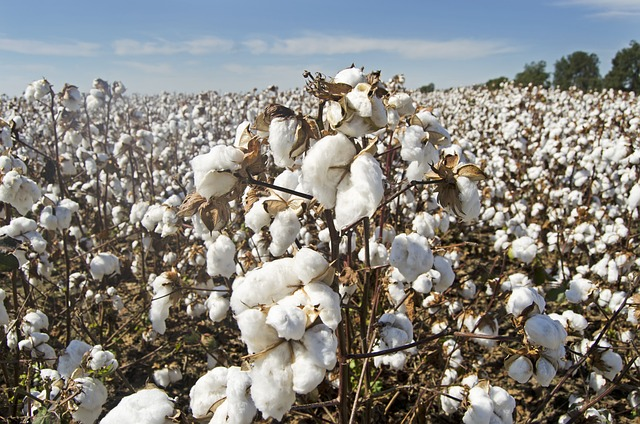
The Heart of Organic Cotton Production
The farmers who grow organic cotton are at the centre of this product and are committed to growing crops in a sustainable and ethical manner.Certification organizations like Global Organic Textile Standard (GOTS) oversee the standards for organic textiles which includes the growing of the cotton, through processing and manufacturing of the fibre into textiles. They provide inspection and certification for the entire organic production chain.
The global organic textile standard ensures that the organic status of textiles, from the raw cotton through the entire production process, is guaranteed by the final garment. When you see an organic cotton label, it's a testament to quality, care, and commitment.
From the Organic Trade Association (OTA) to Textile Exchange, organizations worldwide are championing the cause, ensuring that when you see that organic cotton certification, it's a sign of trust and quality.
Why Choose Organic Cotton?
Organic cotton is a quality choice and a responsibility to the future. It’s a choice you make when you want clothing that truly cares – for the planet, for people and places, and for the next generation. Every organic cotton shirt, skirt, pair of pants, or dress represents a choice for chemical-free farmland, for biodiversity, and for non-genetically modified organisms (GMOs).
And that’s not all. There’s the good stuff that comes from organic cotton. Softer clothing. Long-lasting apparel. A transparent and trustworthy supply chain. The opportunity to literally wear your heart on your sleeve.
At a time when the apparel industry is under scrutiny for negative environmental practices, organic cotton is making us reconsider our choices and the impact those choices have on our precious planet. It’s clothing you can feel good about tomorrow, and the day after that, and for years to come.
For additional information on natural fibers, read our post on natural fiber clothing.
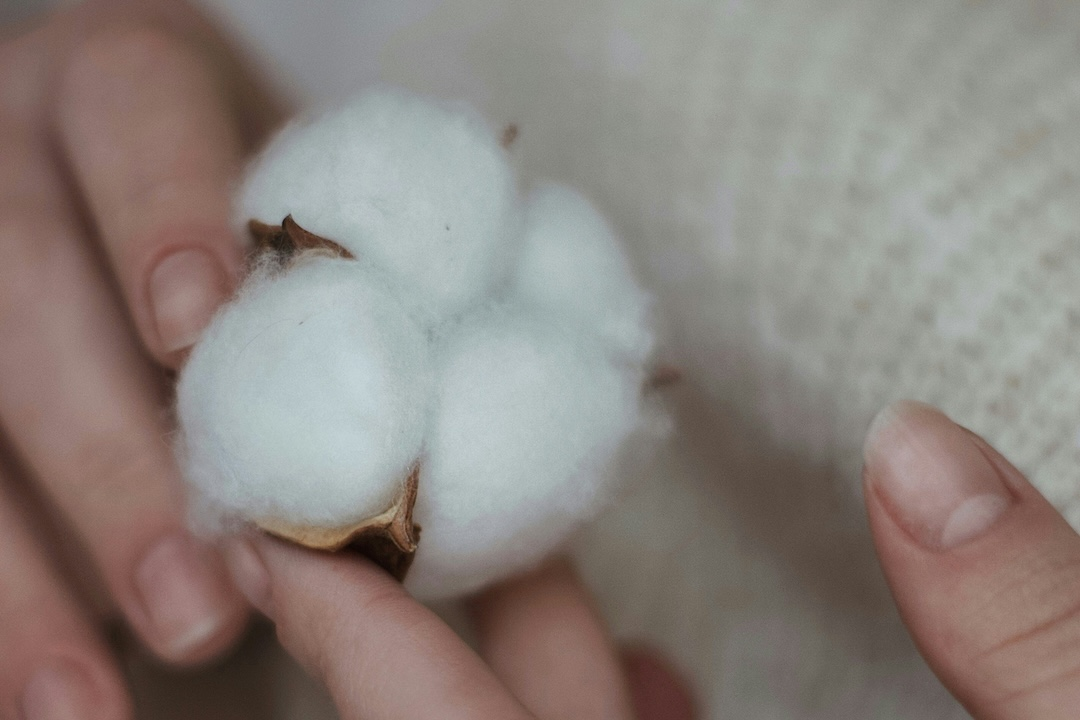
Image von Svitlana Rusak on Unsplash
Organic Cotton vs. 100% Cotton: The Real Difference
When we talk about cotton, the terms "organic" and "100% cotton" often are thrown around, but they are actually quite different. Let's break these labels down and learn what it really means between the two.
Cultivation Methods: A Tale of Two Cottons
-
Organic Cotton: Produced using low impact materials and methods. Organic cotton farming doesn't use toxic chemicals or GMO's. Rather, it utilizes natural processes and materials to grow cotton, like composted manures and cover crops as soil fertilizers.
-
100% Cotton (Conventional): 100% cotton suggests that the fabric is pure cotton; however, it doesn't mention anything about the methods used to grow it. Regular cotton cultivation depends largely on synthetic chemicals (pesticides and fertilizers) and usually genetically modified seeds. This is not as sustainable and actually more damaging to the environment.
Environmental Impact: Beyond the Field
-
Water Usage: Organic cotton uses far less water because it depends more on rainwater rather than irrigation systems, unlike its conventional counterpart which guzzles water resources.
-
Energy Consumption: Less energy is required in the organic cotton cultivation process because of its dependence on natural farming methods, as opposed to conventional cotton production.
Health Benefits: For People and Planet
-
Safer for Farmers and Communities: Organic cotton reduces farmers' exposure to toxic chemicals, creating healthier environments to work and live.

Natural vs. Organic Cotton: Clearing the Confusion
The words "natural" and "organic" are often conflated or used synonymously, but in the case of cotton, they refer to distinct processes and products.
Natural Cotton: All that is Natural is Not Necessarily Good
-
Natural: Merely indicates that the cotton comes from a plant and is not synthetic. "Natural" cotton may be farmed using organic synthetic pesticides and fertilizers, but does not adhere to the rigorous standards set for organic certification. The term "natural" is unregulated, thus easily and frequently misused, and does not imply that the cotton was free from pesticides or synthetic fertilizers. In other words, "natural" cotton can be farmed conventionally using chemical and GMO inputs.
Organic Cotton: Sustainable and Verified
-
Organic: Designates cotton that is grown on certified farms using organic farming methods that meet the rigorous standards of organic certifying agencies, like GOTS (Global Organic Textile Standard) or USDA NOP (National Organic Program). These standards covet the lack of harmful chemicals used in growing the cotton, as well as the farm's impact on the environment and biodiversity.
Certification Matters
The main difference is certification. Standards for organic cotton need to be met and the products need to go through a certification process to ensure that they are in fact organic. Natural cotton is merely a step removed from synthetics and does not guarantee anything in terms of farming and environmental issues.
So, to conclude: both organic and 100% cotton have their place and are better than synthetic fibers, but organic cotton is the superior choice for the environment, health, and conscious sustainable farming methods. As consumers, the more we know about the products we wear and use, the better choices we can make.
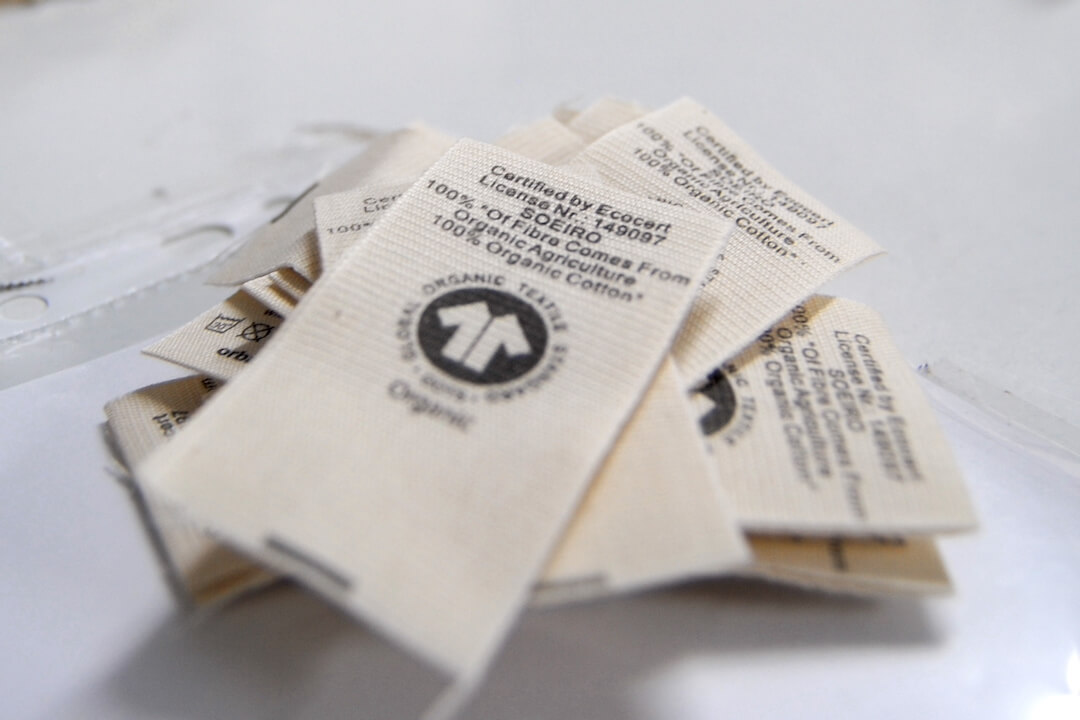
Organic Cotton for Ethical Fashion
On top of the environmental aspects, organic cotton promotes social responsibility throughout the fashion supply chain.
-
Living Wages and Healthy Working Environments: In many cases, organic cotton promotes fair trade practices which ensure farmers receive a living wage for their produce. This financial security allows for community development and higher standards of living.
-
Better Health for Farmers: Organic cotton production eliminates the use of toxic pesticides and fertilisers which can poison farmers and harm local communities. This reduces the risk of poisoning, respiratory and other health effects from chemical use.
-
Empowering Women and Families: Women are the backbone of organic cotton farming. This trade not only supports gender equality but also ensures women farmers are paid fairly for their work, receive education and take on leadership roles within their communities.
-
Pressure for Supply Chain Transparency: As the demand for organic cotton products rise, so does the need for companies to ensure transparency throughout their supply chains. Consumers and activist groups are holding brands accountable for their actions and as this demand increases we’ll see more and more companies change their practices for the better. This industry norm of transparency will trickle down to non-organic cotton farmers alike and should eventually become the gold standard.
Beyond its environmental benefits, organic cotton is a champion of social responsibility, advocating for fair and ethical practices across the fashion supply chain.
How to Identify and Choose Organic Cotton Products
But what can you do in making those choices? Let's look at some tips on how to identify and choose organic cotton products:
-
Look for Certifications: There are several reliable organic certifications that ensure a product meets organic criteria. The most widely used is the Global Organic Textile Standard (GOTS) for textile products, USDA Organic and other credible labels.
-
Understand the Labels: "Eco-friendly" labels can be misleading. Know the terms and certifications to look for. For instance, "made with organic cotton" usually means that at least one ingredient, cotton, was organic. On the other hand, 100% organic cotton means the product contains organic cotton fibers or fibers from plants that were not treated with synthetic pesticides or fertilizers. Anything labeled 100% cotton is not organic.
-
Research Brands and Retailers: Buy from brands and retailers with transparency and integrity. Many brands and retailers are now offering information on their websites about their supply chains, fabric sourcing and sustainability initiatives. Do some research and make conscious purchases
-
Consider the Whole Product: The paperback is an easy target, but what about your organic cotton tee? Be aware that dyes and finishes can have a bigger environmental impact than the cotton itself. Consider the whole product and look for certification from whole product standards like GOTS.
Finally, Here Are the 11 Reasons to Choose Organic Cotton Clothing
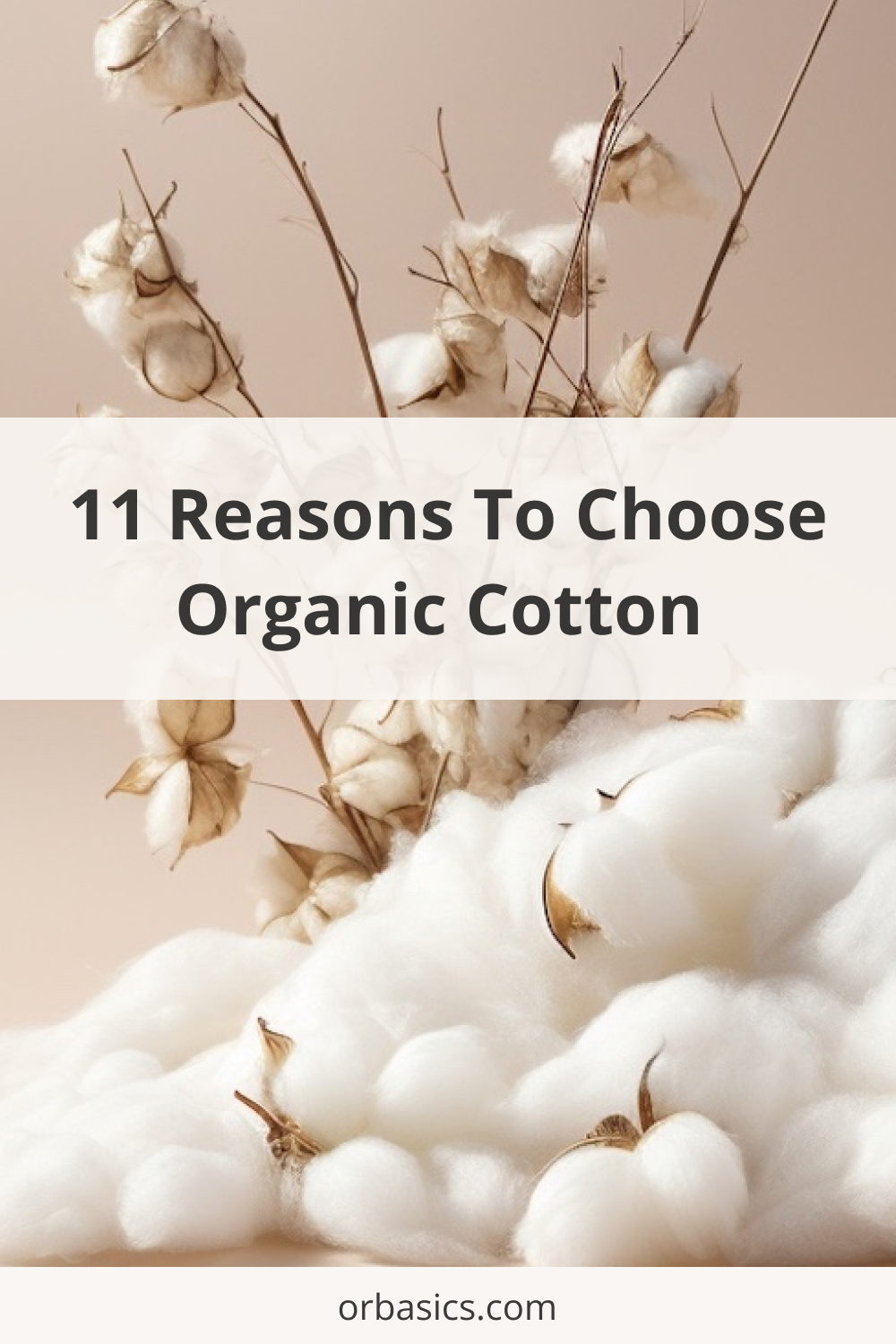
Better for People
-
Ditch the Toxins: Conventional cotton uses significantly more pesticides and herbicides, some of which are highly toxic. Organic cotton avoids these harmful chemicals, making it a safer choice for everyone involved. For more on non toxic clothing, check out our article on chemical-free clothing.
-
Gentle on Skin: Perfect for sensitive skin, allergies, and chemical sensitivities, organic cotton is gentle and free from harsh chemicals, offering natural softness and comfort.
-
Durable Comfort: Because it undergoes less processing and avoids weakening chemicals, organic cotton retains its strength and softness, ensuring your clothes last longer and feel better.
-
Healthier Farmers: Organic farming protects farmers and their families from exposure to toxic chemicals, leading to healthier communities and safer working conditions.
-
Non-Toxic Dyes: Organic cotton is often dyed with low-impact, safe dyes and is free from harmful finishing chemicals like formaldehyde, making the final product safer to wear.
-
Fair Wages: Many organic cotton farmers are part of fair trade initiatives, ensuring they receive fair compensation and work in better conditions, which supports community development. Learn more about slow fashion in this guide.
Better for the Earth
-
Lower Carbon Footprint: Organic cotton farming produces significantly less CO2e compared to conventional methods, helping to reduce greenhouse gas emissions and combat climate change.
-
Clean Waterways: By eliminating harmful chemical runoff, organic cotton farming keeps our waterways cleaner and safer for wildlife and humans alike.
-
Support Biodiversity: Using rainwater for irrigation and relying on beneficial insects for pest control, organic cotton farming promotes a healthier, more biodiverse ecosystem.
-
Pure and Natural: Free from synthetic substances, organic cotton ensures that no harmful chemicals touch your skin or pollute the environment, offering a truly natural product.
-
Promotes Regenerative Agriculture: Some organic cotton farming practices align with regenerative agriculture principles, which focus on improving soil health and ecosystem resilience. This not only sustains the land but enhances its productivity over time.
As demand for sustainable textiles continues to grow, our collective choices can drive meaningful change, leading to a healthier planet and a more equitable society.
Let's wear our values on our sleeves and make every choice count. For a deeper dive into sustainable materials, check out our article on sustainable materials and join the movement towards a greener, kinder world.

FAQ
Is organic cotton better than 100% cotton?
Absolutely! Organic cotton is a superstar when it comes to being eco-friendly and healthy. Here’s why: Less Chemicals - Organic cotton skips the nasty chemicals, making it safer for you and the planet; Healthy Soil - It’s grown in ways that keep the soil healthy and full of life; Biodiversity Boost- Organic farms encourage more plant and animal life, which is great for the ecosystem.
However, organic cotton does come with some challenges. It can be pricier and the yields can vary, but the benefits often outweigh these issues.
When you buy organic cotton, you’re making a choice that supports a healthier environment and better health for yourself. Sure, it might cost a bit more, but the positive impact on the planet and your well-being makes it worth considering. Plus, you’re supporting brands that care about sustainability and ethical practices. So, if you’re passionate about making a difference, organic cotton is definitely the way to go!
Is buying organic cotton worth it?
Buying organic cotton can be worth it if you prioritize environmental sustainability, personal health, and are willing to invest in higher-quality, longer-lasting products. However, it is essential to look for certified organic products to ensure that the benefits extend beyond just the farming process. For those on a tighter budget, buying secondhand organic cotton or high-quality secondhand conventional cotton can be a more sustainable and economical choice.
What is the difference between natural and organic cotton?
While both natural and organic cotton aim to be more environmentally friendly than conventional cotton, organic cotton offers a higher level of assurance due to its strict certification standards and regulated farming practices.













